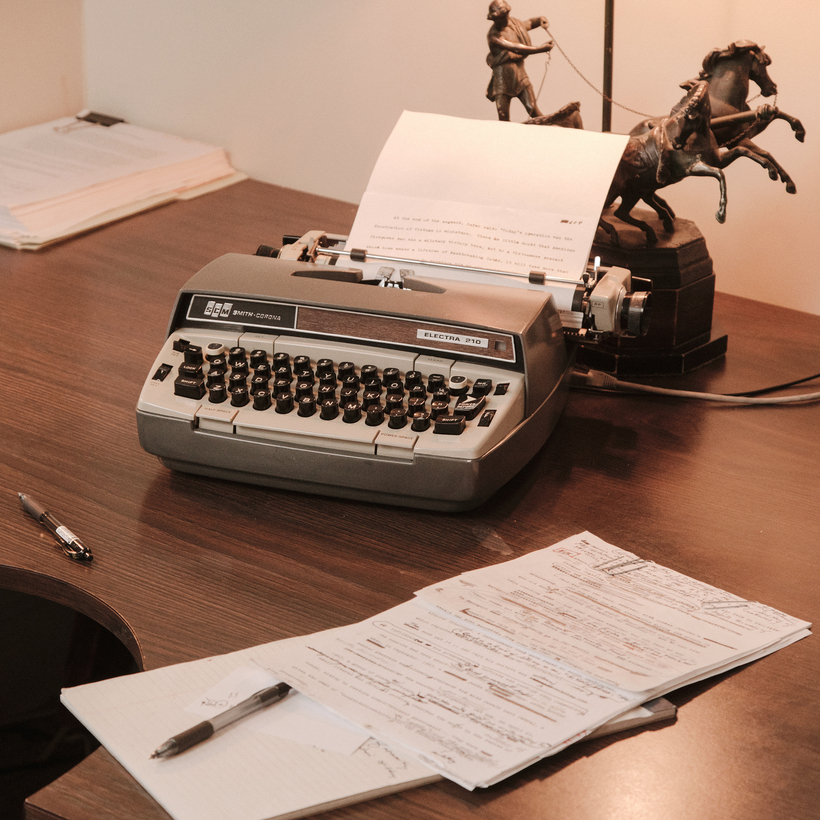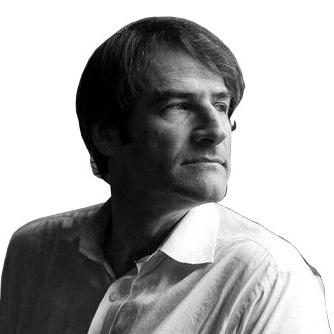Turn Every Page: The Adventures of Robert Caro and Robert Gottlieb, a new documentary that I saw at its premiere on Sunday at the Tribeca Film Festival, contains a multitude of love stories encased in a story of suspense.
One might assume, given the movie’s subtitle, that the principal love story is between Robert Caro, the author of five monumental works of political history, and his editor, Robert Gottlieb. But that is not the case.
The first of Caro’s books was The Power Broker: Robert Moses and the Fall of New York, published in 1974. Barack Obama, who spoke when Caro received the National Humanities Medal, recalled feeling “mesmerized” upon first reading the book, at age 22. Early in the film, we are treated to a comic montage of television pundits broadcasting from home at the dawn of the Zoom era; on all their bookshelves, squatting like a linebacker, sits The Power Broker. “In certain circles,” according to The New York Times, the book had become “the breakout star of the Covid-19 era.”
The film is equally droll in its introduction of Robert Gottlieb, illustrating his enormous influence on 20th-century, postwar American literature by sending him to the Strand in the company of his teenage grandson. “I heard you have edited a book or two,” says the young man. “Six or seven hundred,” replies Gottlieb.
Strolling through the store, they revisit some of his better-known authors, whose books are still prominently displayed, and still selling: Toni Morrison, John Cheever, Nora Ephron, John le Carré, and on and on. Coming upon Catch-22, Gottlieb explains that Joseph Heller’s original title was “Catch-18,” but another novel was coming out at the same time whose title used the number 18. Gottlieb suggested “Catch-22,” which Heller admitted was better.
If Turn Every Page were a movie only about the cross-pollinated careers of these two men, it would be enough. Or, to quote the Caro obsessive Conan O’Brien, trying to calm his own anxieties about the not-yet-finished fifth and final volume of Caro’s multi-part biography of Lyndon Johnson, “Dayenu!” But the movie is about much more than these two men.
It is also a love story between Caro and his work. A love story between Caro and his wife and fellow researcher, Ina. Between Gottlieb and his work. Between Gottlieb and his wife, the actress Maria Tucci (whose father was the magnificent short-story writer Niccolò Tucci, one of Gottlieb’s authors, who introduced them). It is a love story between Gottlieb and his daughter, Lizzie, the filmmaker. And it is a love story between the camera and New York City.

Then there’s a love story between the reading public and the two figures at the center of the movie, heroes, exemplary in their work ethic, the quality of their work, and their ability to make money without compromising that quality. It’s also a love story about America’s egalitarian dreams, in which re-invention and hard work can make anything possible, no matter how humble the beginnings.
“Two New York City guys, geniuses, really, for whom work is central” is how Kathy Hourigan, longtime managing editor at Knopf, describes them. “Two guys who are the best in their field. Bob Caro, the greatest political writer and thinker of our time. Bob Gottlieb, the greatest editor of his time, central to the literature of our time.” You could almost imagine you were watching a sports documentary.
We are treated to a comic montage of television pundits broadcasting from home at the dawn of the Zoom era; on all their bookshelves, squatting like a linebacker, sits The Power Broker.
Less stirring, perhaps, but more trenchant is a remark by Lisa Lucas, the senior vice-president and publisher of Pantheon and Schocken, and one of the few Black faces to appear, who speaks of the profound empathy in Caro’s work, that emphatic, nearly Old Testament insistence on conveying to the reader what the lives of the people he is writing about were like in all their particulars.
Then there is the love story—or domestic drama—about a writer and his editor. At some point during the writing of Volume Three of the Johnson project, Gottlieb suggests that he and Caro have to tone down their fights for reasons of health. And yet an editor’s tough love is not unlike that of a parent. In one of many fascinating asides, Gottlieb reflects that while he has whiffed on some big books, he has no regrets about his instincts, because without an editor’s full enthusiasm and support, those books might never have become sensations.
Yet another love story involves the now antiquated idea of the office as a place of creativity and collaboration. Turn Every Page should be mandatory viewing for every commercial-real-estate agent in New York City. Caro and Gottlieb do not work in bed, even if Gottlieb—who ran Simon & Schuster and Knopf, with a brief interlude editing The New Yorker—tends to look like he just rolled out of one. Caro starts his days in a jacket and tie, strolling through Central Park on the way to his office on 57th Street.
That office is an austere space, its most ornate object an armoire where he hangs his jacket. Tacked inside the armoire are pieces of paper on which Caro records the number of words he has written at the end of each day, along with some choice exhortations to himself that he declines to reveal. The vibe is a cross between Mister Rogers’ Neighborhood and “Bartleby, the Scrivener.”
Once, at the East Hampton Book Festival, I sat catty-corner to him while we signed our respective books. I got through my duties quickly but stayed in my seat to observe Caro. The line for his table went around the block. He stood beside a gigantic but slowly diminishing pile of his works. At some point a sandwich arrived on a plate. What seemed like hours went by. I left and came back to find that all the books were gone, as was Caro. The sandwich was still there, untouched.
Everyone in the film is so witty and well known, or at least well spoken, that the movie never sinks into a funk of platitudinal reverence. Even the complicated marriages seem exemplary, partly because there is no pretense of perfection. Ina Caro, told by her husband that they have to move to the Texas Hill Country in order to properly research Johnson, replies, “Couldn’t you write a book about Napoleon?”
Between the jaunty soundtrack, the crisp editing, the sumptuous Manhattan interiors, the voice-overs, and the aura of bemused sophistication and effortless success, this may rank as my all-time favorite Wes Anderson movie.
When the house lights came up, the four chairs onstage were filled with the people we’d been watching on-screen. Caro, asked if he sees any reason for hope in the current political scene, said he does. When Johnson became majority leader, the Senate was dominated by a block of Southern senators who controlled five of the eight most powerful committees. It was paralyzed.
“Almost overnight the Senate became the center of energy and creativity in government. At the time [Robert] Moses started,” he added, “everyone said, ‘No one can build anything big again in New York.’” An audience member asked Caro why The Power Broker, a heavy lift, is not on Kindle. “The book is the book,” Caro replied.
Gottlieb, asked what makes Caro tick, responded, “I don’t want to know what makes him tick,” adding—and here is the suspense—”I just want him to go on ticking.”
Turn Every Page: The Adventures of Robert Caro and Robert Gottliebis available for streaming on Amazon Prime
Thomas Beller is the author of several books, including Seduction Theory, The Sleep-Over Artist, and J.D. Salinger: The Escape Artist. His next book, Lost in the Game: A Book About Basketball, will be published by Duke University Press in November


